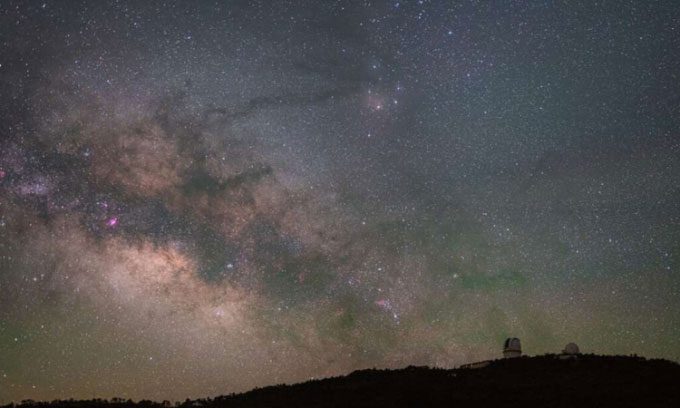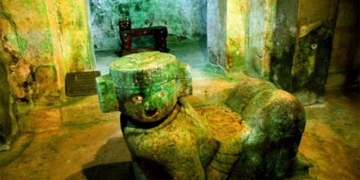The Greater Big Bend Dark Sky Reserve at the United States-Mexico border spans an area of 40,000 km² and was established to combat the spread of light pollution.
Big Bend National Park in Texas, USA, has become part of the largest dark sky reserve in the world, as reported by IFL Science on April 8. This is also the first international dark sky reserve, crossing the border between the United States and Mexico. The goal of creating such reserves is to prevent the spread of light pollution by implementing night sky-friendly practices.

The Milky Way shines brightly against the dark sky above McDonald Observatory. (Photo: Stephen Hummel/McDonald Observatory)
The Greater Big Bend International Dark Sky Reserve covers approximately 40,000 km². It will benefit the local community, wildlife, astronomers, tourists, and businesses.
The establishment of this area is a collaborative effort involving the McDonald Observatory at the University of Texas at Austin, the Nature Conservancy, the International Dark-Sky Association (IDA), the National Park Service, the Texas Parks and Wildlife Department, the Mexican National Natural Reserves Commission, as well as local organizations and businesses.
“Without widespread support and long-term efforts to preserve the natural beauty of the Big Bend area, a dark sky reserve of this scale would not have been possible. This is a true community effort, and the people in the region should be proud of what we have achieved together,” said Teznie Pugh, manager of the McDonald Observatory.
The reserve includes a core area surrounding the Davis Mountains Reserve, where the McDonald Observatory is located, and will implement the strictest lighting regulations, along with larger supporting areas where light pollution will be minimized without affecting the lives of residents.
“This reserve protects both the scientific research missions and public education of the McDonald Observatory. Since 1939, the observatory has assisted faculty, students, and researchers at the University of Texas at Austin and other educational institutions in Texas in studying the universe, covering topics from planets orbiting nearby stars to the accelerating expansion of the universe,” shared Taft Armandroff, director of the McDonald Observatory.
Dark sky reserves offer numerous benefits. The lighting practices used enhance safety, save energy, and allow both humans and wildlife to enjoy the cycles of day and night.


















































